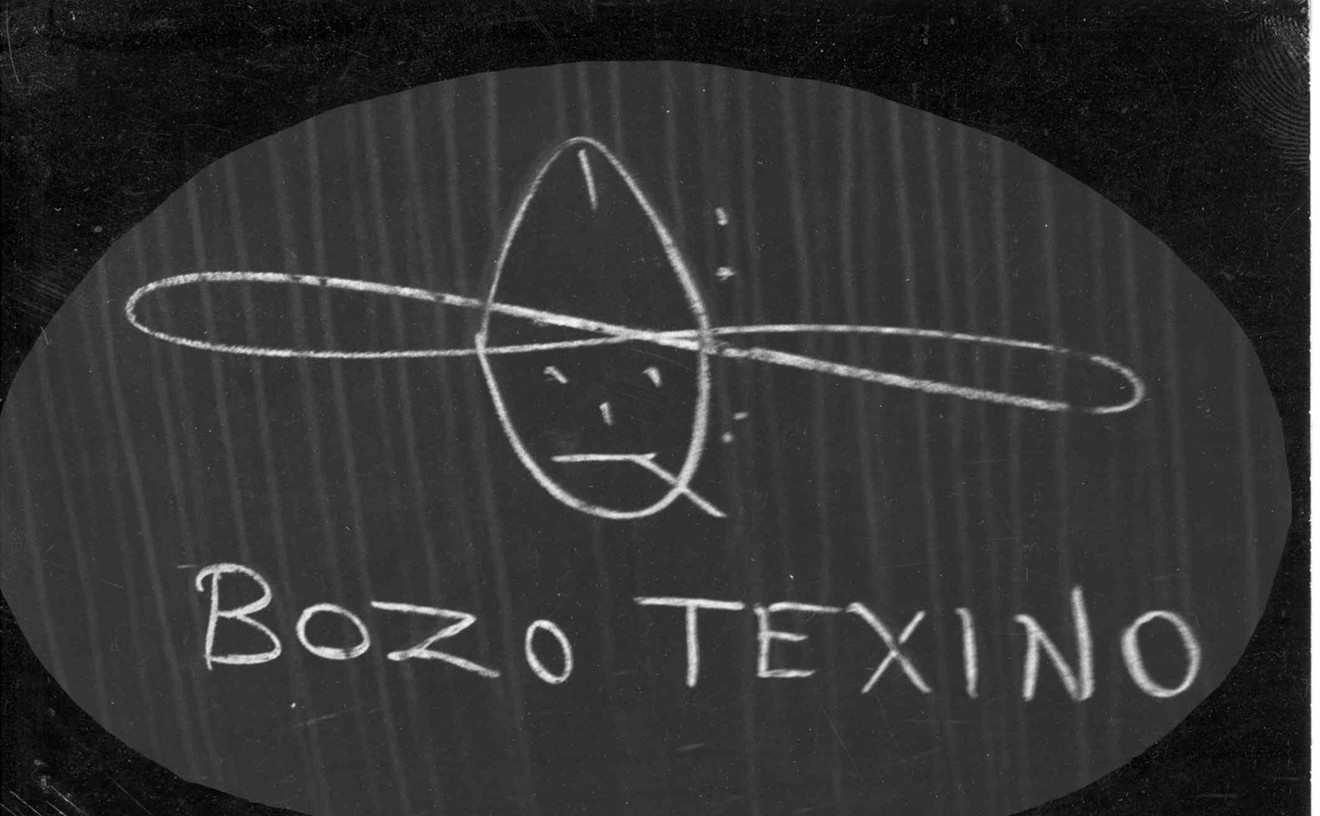They'll be signing the tome at the Tattered Cover LoDo tonight at 7:30 p.m.
; in advance of that, we caught up with Gotham to ask a few questions.Westword: How did you come to collaborate with your father on this book?
Gotham Chopra: I did a panel in San Diego at Comic Con. My father and Grant Morrison were panelists, and I moderated. The idea of applying my father's principles to the world of superheroes hatched spontaneously during that panel. I then wondered if you could take these spiritual principles and apply them to the world of superheroes, both ancient and modern.
WW: Were there challenges in working with your famous father?
GC: No, not really. This was a very organic blending of his world and my world.
WW: How do you make the superhero connection in the book?
GC: There are many examples in the comics: The most iconic superhero of all, Superman, has the physical attributes of the Greco-Roman gods. But his real power stems from his confidence, his fearlessness and his invulnerability. When he takes on his superhero persona, we try to identify these classic superhero traits and how they might resonate in modern society. Iron Man wears his iron suit, of course, but his real power is creativity, ingenuity. He solves every problem in front of him intuitively. Others are more empathic: Silver Surfer is one, and X-Men's Rogue. Compassion is their superpower. They take on the suffering of those around them and gain power from the collective consciousness. WW: How did you become immersed in the business of superheroes?
GC: When I was young, I grew up in the U.S., but we spent our summers in India. It was so wildly hot there that there was nothing to do, so I'd buy comic books and stay in my grandparents' house all day and read them. The comics of India were chronicles of the gods and goddesses, and the king and queens; you could say that was my cultural exposure to my ancestry. In this country, on the other hand, we can't seem to exist without our Batmans and Supermans. The fusion of those two worlds had me fascinated.It struck me: I'm a guy who does go see Iron Man on the weekend. I studied English in college, but I'm attracted to storytelling. I consider myself a disciple of Joseph Campbell.
WW: Tell us more about your work.
GC: For my comic company, I actively create characters and try to find new artists. I'm basically running a business, which is hard, especially in this brave, new digital world. I'm always trying to figure out new models. What I do is divided into two lines: For the first, I incubate projects with filmmakers like John Woo [with whom he collaborated in The Bulletproof Monk] or Guy Ritchie, working with these iconic Hollywood directors to realize whatever comes out of their heads. The other thing I do is develop young Indian talent - artists, writers and filmmakers who are bringing the mythology and cultural ethos of that part of the world into the comics. These kids grew up like I did, with the same exposure into mythology and how it could resonate in modern society. It's become the basis for these big epics set in modern times: The 300 is an example of that, or Thor. I also like shooting films: I've been working on a documentary about my father, in the sense of who he is in the world as opposed to who he is in our family, and then deconstructing that.
WW: How about your father's doctrines? Do you try to follow those?GC: We all have these qualities in infancy and have to learn how to nurture and make them powerful in our own lives. I try to follow them. I've grown up around them. I try to integrate them onto my life, but I'm not not a master. No one, including my father, is completely able to do that.
WW: What will you and your father discuss at the book signing?
GC: I'm sure my father will do a lot of the talking. He's never at a loss for words. He'll focus on practical application of these principles, and how we see them in these characters, how all these qualities exist in us in embryo. I'm more of the traditional storyteller.











